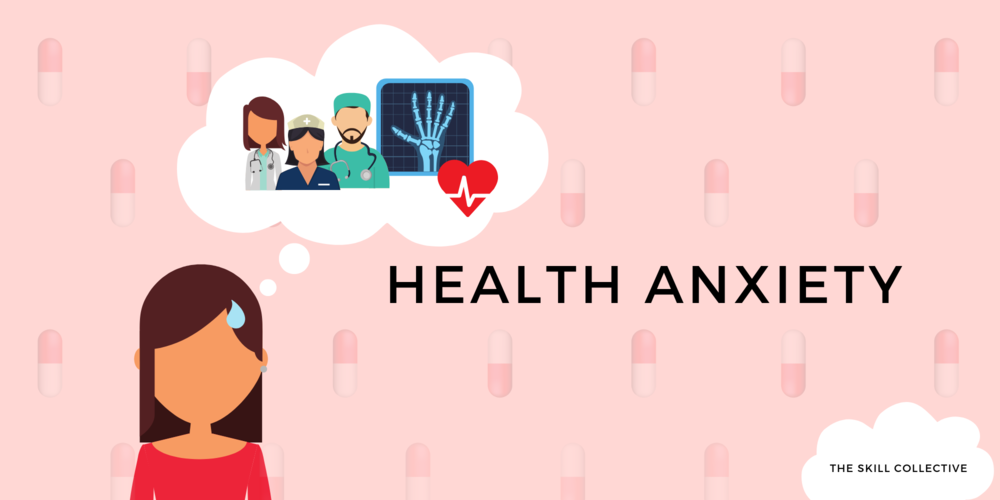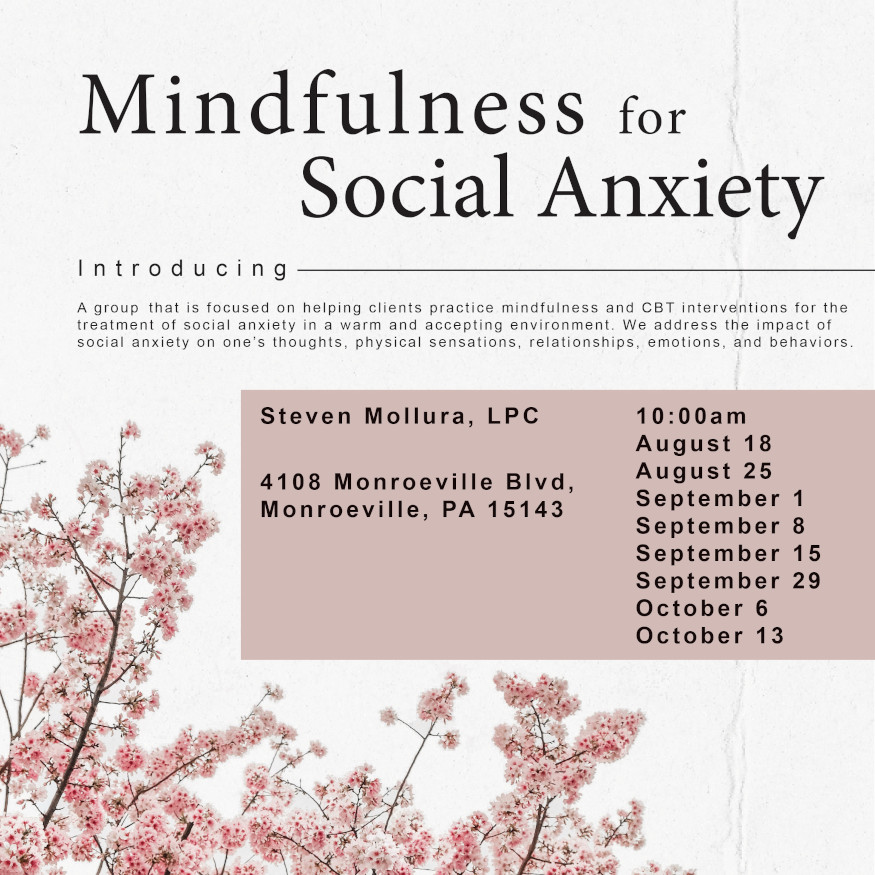
Health Anxiety During a Pandemic
by Counseling and Wellness Center of PittsburghMarch 26, 2020 health anxiety, hypochondriac, online counseling, pandemic, treatment for anxiety0 comments
Health Anxiety During a Pandemic
Health anxiety is a term which identifies the cluster of behaviors around the physical body and its processes and specifically a preoccupation with preventing or experiencing disease or illness. Some of its symptoms are symptom checking, frequent trips to the doctors office, seeking reassurance that you are not dying or gravely ill. In the matter of weeks,...Learn More
Mindfulness for Social Anxiety, A Skills Group
by Counseling and Wellness Center of PittsburghMay 20, 2019 counseling monroeville, how to overcome social anxiety, social anxiety treatment0 comments
Mindfulness for Social Anxiety, A Skills Group
This group is focused on helping clients practice mindfulness and cognitive behavior therapy (CBT) interventions for the treatment of social anxiety in a warm and accepting group environment. With the help and facilitation of Steven Mollura, LPC participants will address the impact of social anxiety on one’s thoughts, physical...Learn MorePhobia Therapy & Treatment
by Counseling and Wellness Center of PittsburghMarch 16, 2018 anxiety, anxiety therapy pittsburgh, counseling, counseling pittsburgh, educational, generalized anxiety disorder therapy pittsburgh, licensed therapist monroeville, licensed therapist pittsburgh, psychology, psychotherapy, therapist, therapist in murrysville, therapists, therapy, therapy for anxiety, therapy pittsburgh, wellness, wellness center monroeville, wellness pittsburgh0 comments
Phobia
A phobia is a fear or anxiety response of heighted arousal, ie rapid heart rate, rapid breathing, and thoughts of intense worry and this most likely leads to avoidance of the situation or object. Some examples of typical phobias are fear of public speaking, fear of choking or vomiting, fear of spiders (arachnophobia), fear of enclosed spaces (claustrophobia), fear of bridges, fear of...Learn MoreTherapy and Counseling, Treatment For Anxiety
by Counseling and Wellness Center of PittsburghMarch 15, 2018 anxiety, anxiety therapy pittsburgh, Certified Nutritionist, clinical herbalist, cognitive behavioral therapy, counseling, counseling for anxiety, counseling pittsburgh, generalized anxiety disorder therapy pittsburgh, licensed therapist monroeville, licensed therapist pittsburgh, mindfulness, Nutrition Counseling, Nutritionist, therapist, therapist in murrysville, therapy, therapy pittsburgh, wellness center monroeville, wellness pittsburgh0 comments
Treatment for Anxiety
Treatment for anxiety takes many forms, there are generally three main agreed upon and clinically verified methods to manage and reduce symptoms of anxiety. Counseling or Therapy with a licensed counselor or therapist is the first treatment route. The treatment route for this form of help can vary from short term, brief solution-focused counseling interventions as well...Learn MoreSeeking Treatment for an Anxiety Disorder? 3 things to look for in a Therapist to Treat your Anxiety
by Counseling and Wellness Center of PittsburghMarch 4, 2018 anxiety, anxiety therapy pittsburgh, counseling pittsburgh, free therapy pittsburgh, generalized anxiety disorder therapy pittsburgh, licensed therapist monroeville, licensed therapist pittsburgh, searching for a therapist in monroeville, searching for a therapist pittsburgh, social anxiety therapy, therapist in murrysville, therapy for anxiety, therapy pittsburgh, treatment for anxiety disorder0 comments
3 things to look for in a Therapist to Treat your Anxiety.
If you are noticing that there has been a shift in your mood, energy, sleep cycle, appetite, digestion, or overall quality of life, or maybe you have recently been diagnosed with a chronic health condition and have a more recent onset of anxious feelings. You may be wondering if you meet the criteria for the diagnosis of...Learn MoreAnxiety; Pills and Possibilities, A Psychotherapists Musings
by Stephanie McCrackenApril 30, 2014 counseling, mindfulness, personal growth, psychology, psychotherapy0 comments
Who among us has not suffered from feelings of anxiety at some point in his or her life, it is common enough to be among the more often seen symptoms which bring an individual into a therapist’s office. Even for the most staunchly healthy psyches anxiety is a typical benchmark which exists in a range of degrees within the human emotive process. Depending upon you as the individual and the...Learn More
